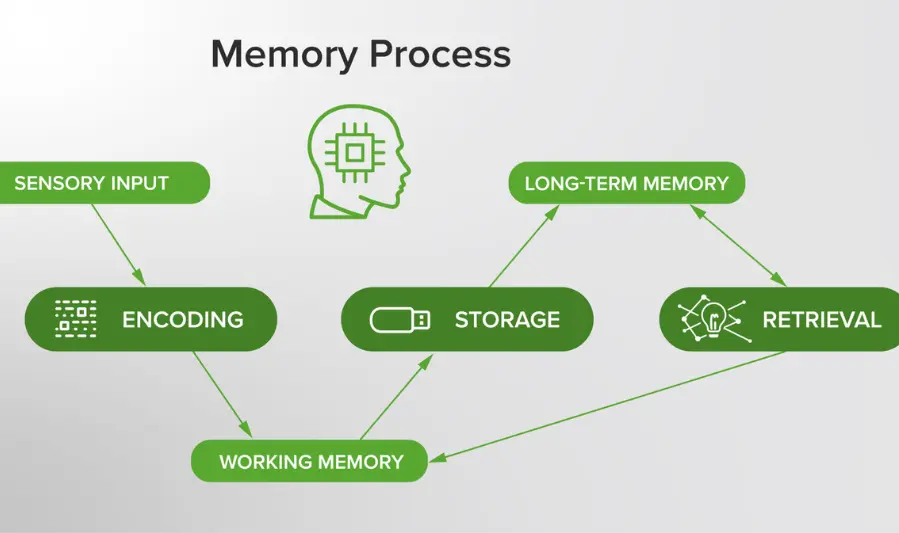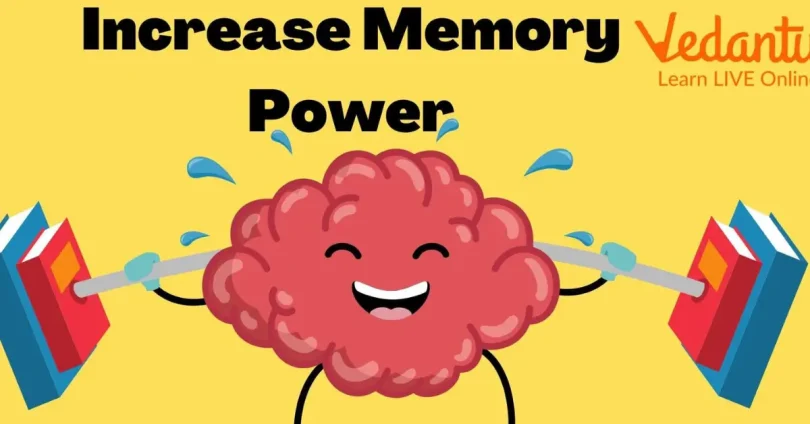Introduction
Memory plays a crucial role in effective studying, as it directly impacts how well we learn, retain, and recall information. Improving your memory not only makes studying more efficient but also boosts exam performance and overall academic success. In this post, we will explore natural and practical tips that can help enhance your memory and make your learning journey smoother and more productive.
Understanding How Memory Works

Memory involves three key processes: encoding, storage, and retrieval. Encoding is how your brain processes new information, storage refers to maintaining that information over time, and retrieval is the ability to access it when needed.
There are two main types of memory: short-term memory, which holds information temporarily, and long-term memory, where knowledge is stored more permanently for later use.
Several factors can affect memory performance, including stress levels, quality of sleep, and proper nutrition. Managing these elements is essential for maintaining a sharp and effective memory.
Practical Memory Improvement Techniques
3.1 Mnemonic Devices
Mnemonic devices are memory aids that help you recall information more easily. Common examples include acronyms (e.g., PEMDAS for math order of operations), rhymes, and chunking (breaking information into smaller groups). Mnemonics work by creating associations that make the information more memorable. To create your own, try linking new information with familiar words or phrases that are easy to remember.
3.2 Spaced Repetition
Spaced repetition involves reviewing information at increasing intervals over time, which strengthens long-term retention. Unlike cramming, spaced repetition reduces forgetting and improves recall. Popular apps like Anki and Quizlet can help automate this process and make studying more efficient.
3.3 Teaching and Explaining Concepts
Teaching others or explaining concepts aloud reinforces your understanding and memory. This can be done through peer teaching, recording yourself summarizing key points, or writing detailed summaries. The act of retrieval strengthens neural connections related to the material.
3.4 Visualization and Mind Mapping
Visual learning techniques like mind maps and mental imagery help link concepts in a memorable way. Creating mind maps involves organizing information visually with branches and connections, while mental images or stories can make abstract ideas more concrete and easier to recall.
3.5 Focus and Avoiding Multitasking
Multitasking splits attention and negatively affects memory retention. To maintain focus, use techniques like the Pomodoro method (studying in short, focused intervals) and create distraction-free study areas. Minimizing interruptions allows your brain to encode information more effectively.
Lifestyle Habits that Support Memory

4.1 Physical Exercise
Regular physical exercise boosts brain function by improving blood flow and stimulating growth of brain cells. Activities like walking, jogging, or yoga for at least 30 minutes a day can enhance memory and cognitive performance.
4.2 Quality Sleep
Sleep is vital for memory consolidation, where short-term memories are transferred into long-term storage. To improve sleep hygiene, maintain a consistent sleep schedule, avoid screens before bedtime, and create a relaxing sleep environment.
4.3 Nutrition and Hydration
Eating brain-boosting foods rich in omega-3 fatty acids (like fish), antioxidants (berries, nuts), and staying well-hydrated supports cognitive functions and memory. Avoid excessive caffeine and sugary foods that can impair concentration.
Additional Tips and Tools
- Use Flashcards for Active Recall Practice:
Flashcards are a simple yet powerful way to test your memory actively. Writing questions on one side and answers on the other forces your brain to retrieve information, which strengthens learning. Apps like Quizlet and Anki make digital flashcards easy to create and review on the go. - Keep Study Sessions Short and Frequent:
Rather than long, exhausting sessions, aim for shorter, focused study periods spread out over days or weeks. This aligns with the spaced repetition principle and helps prevent burnout, keeping your mind fresh and attentive. - Set Realistic Study Goals and Take Breaks:
Setting achievable goals for each study session helps maintain motivation and track progress. Incorporate regular breaks to rest and recharge—this can improve concentration and memory retention.
you may also like to read these posts:
All-in-One Computers Guide 2025: Best Picks & Buying Tips
Best Gaming PCs Under $1000 in 2025 for Smooth
Best Business Computers in 2025: Performance & Reliability
Top Memory Improvement Tips to Boost Your Study Sessions
Effective Study Techniques Defined: Boost Focus, Retention & Results
Common Mistakes to Avoid
- Cramming and All-Night Studying:
Relying on last-minute intense study sessions can overload your brain, reduce memory retention, and increase stress. Consistent, spaced study is far more effective. - Ignoring Mental and Physical Health:
Neglecting sleep, nutrition, exercise, and stress management can seriously impair your memory and overall cognitive function. A healthy body supports a healthy mind. - Overloading with Too Much Information at Once:
Trying to learn too much in one sitting can cause confusion and fatigue. Break study material into manageable chunks to enhance understanding and recall.
Common Mistakes to Avoid
- Cramming and All-Night Studying
Trying to memorize everything in one session often leads to poor retention and increased stress. Instead, spread your study over multiple, shorter sessions. - Ignoring Mental and Physical Health
Skipping sleep, proper nutrition, or exercise can negatively impact your memory and focus. Prioritize self-care to keep your brain functioning optimally. - Overloading with Too Much Information at Once
Studying large amounts of material without breaks can overwhelm your brain. Break your study material into smaller chunks for better absorption and recall.
Faqs:
How can mnemonic devices help improve memory for studying?
Mnemonic devices use patterns like acronyms or rhymes to make information easier to remember by associating it with familiar cues.
What is spaced repetition, and why is it effective?
Spaced repetition is a study technique where you review material at increasing intervals. It helps strengthen long-term memory by reinforcing information over time.
How does sleep affect memory retention?
Quality sleep is crucial because it helps consolidate memories, transferring information from short-term to long-term storage.
Can physical exercise really improve my memory?
Yes! Exercise increases blood flow to the brain and promotes the growth of new brain cells, enhancing cognitive function and memory.
Why should I avoid multitasking when studying?
Multitasking divides your attention, making it harder to encode information into memory and reducing overall study efficiency.
Conclusion:
Improving memory for studying doesn’t require magic—just mindful changes to your habits, techniques, and lifestyle. Whether you’re using mnemonic devices, practicing spaced repetition, getting better sleep, or simply staying active and well-nourished, each strategy helps reinforce your ability to learn and recall information effectively. Start by applying just a few of these memory tips, build consistency, and you’ll likely see a noticeable difference in your academic performance and confidence. Remember, smart studying is just as important as hard studying.





